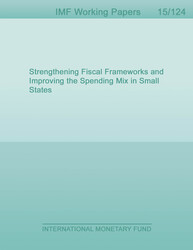
Strengthening Fiscal Frameworks and Improving the Spending Mix in Small States
Reflecting diseconomies of scale in providing public goods and services, recurrentspending in small states typically represents a large share of GDP. For some small states,this limits the fiscal space available for growth-promoting capital spending. Small statesgenerally face greater revenue volatility than other country groups, owing to theirexposure to exogenous shocks (including natural disasters) and narrow production bases.With limited buffers, revenue volatility often results in procyclical fiscal policy as theeconometric analysis shows. To strengthen fiscal frameworks, small states should seek tostreamline and prioritize recurrent spending to create fiscal space for capital spending. Thequality of spending could also be improved through public financial management reformand multiyear budgeting.
Publication date: June 2015
ISBN: 9781513529103
$18.00
Add to Cart by clicking price of the language and format you'd like to purchase
Available Languages and Formats
| English |
Prices in red indicate formats that are not yet available but are forthcoming.
Topics covered in this book
This title contains information about the following subjects.
Click on a subject if you would like to see other titles with the same subjects.
Economics- Macroeconomics , Economics / General , International - Economics , revenue volatility , procyclical policies , quality of spending , revenue , debt , expenditure , public spending , General
Summary
Copyright © 2010 - 2026
Powered by:
AIDC



